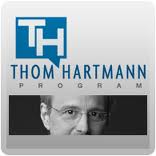 Privatization mania is wreaking havoc on our society. Case in point: what’s happened over the past few decades with prison phone services.
Privatization mania is wreaking havoc on our society. Case in point: what’s happened over the past few decades with prison phone services.
It used to be that if you were an inmate at, say, the state penitentiary or the local jail you could call your family collect for as little as $4 an hour. But then, states began signing contracts with private phone companies like AT&T, who, in turn, began charging sky-high rates for phone calls between prisoners and their families.
A 15-minute phone call that used to cost just a few bucks soon started costing as much as $17, which is a lot to ask from inmates who have little to no income or from their families, who often live in poverty.
Of course, while prisoners struggled to find a way to talk to their loved ones without breaking the bank, the phone companies got -- and have stayed -- very, very rich. The prison phone service industry now rakes in around $1.2 billion every year. And it’s not just the phone companies that are getting rich off prisoners’ phone calls.
Thanks to so-called “commissions” that can account for as much as 94 percent of the cost of a call, prison phone contracts have become a major source of revenue for state and local governments all across the country.
These glorified kickbacks have also become a source of revenue for prisons themselves, and they use them to pay for the healthcare and food services they’re already constitutionally required to provide.
In other words, like pretty much every other case of privatization over the past few decades, the rise of private prison phone contracts has nothing to do with “efficiency” or “improving services” and has everything do with making a quick buck for some crony capitalist with a bunch of Republican friends in Congress..
As Paul Wright of the Human Rights Defense Center told ThinkProgress, “For decades, prisons and jails provided secure, cheap telephone services with no problems. They’re perfectly capable of doing it. It’s just that now they view prisoners as profit centers. They’re monetizing human suffering and human captivity.”
Luckily, though, the government is starting to take action against some of the worst excesses of the phone service-industrial complex. In 2013, the FCC capped calls between prisoners and their out-of-state family members to no more than 25 cents per minute. And this summer it’s expected to crack down on the “commissions” system that’s forcing inmates to pay for their own imprisonment and helping state governments get rich of mass incarceration.
Law enforcement, though, is having none of it.
The National Sheriffs’ Association says that if the government cuts back on the kickbacks prisons get from inmate phone calls, they could just stop providing phone call services altogether.
This is a perfect example of everything that’s wrong with privatization, especially the privatization of important parts of the commons like prisons.
Like the powers to wage war, kill, or draft, the power to imprison is among the most serious powers that we entrust to our government. We’re so wary of police and military power that even in our democratic society where the authorities are ultimately accountable to “We the People,” we restrict it with the Constitution and its Bill Rights.
The problem with privatization is that it creates a built-in incentive to abuse this power, and prevents “We the People” from keeping tight control over the functions of our government. Thanks to kickbacks from phone companies, state and local governments have every reason to keep their prison cells filled, no matter what the cost to the rest of society.
And when there’s so much money to be made from exploiting prisoners, and that money then gets recycled back to the politicians as campaign contributions, it’s that much harder to get our elected representatives to reform our screwed up criminal justice system.
It’s time to stop treating prisons like cash cows and time to start treating them like what they are: an important part of the commons that should never, ever be run for the profit motive. Call the FCC today and tell them you support their move to clamp down on the phone service-prison-industrial complex.
Prisoners Are a Cash Cow For the Rich
By Thom Hartmann A...



